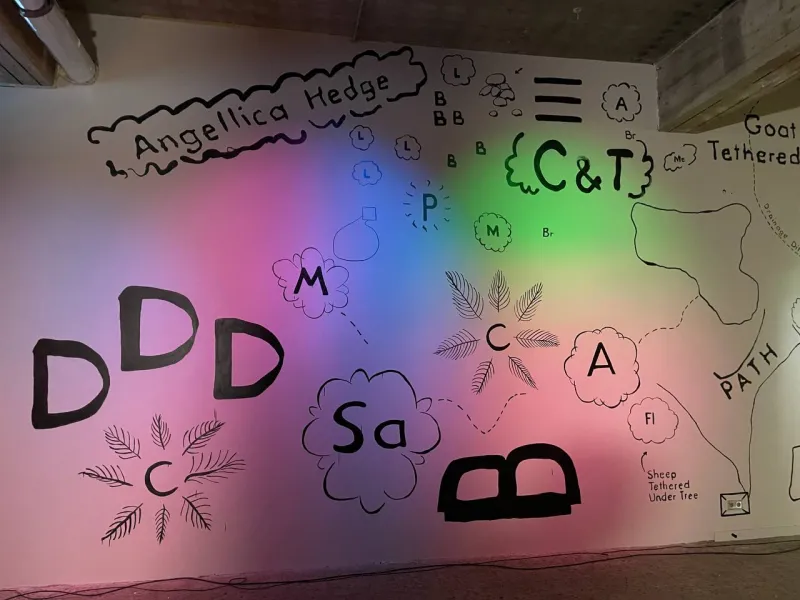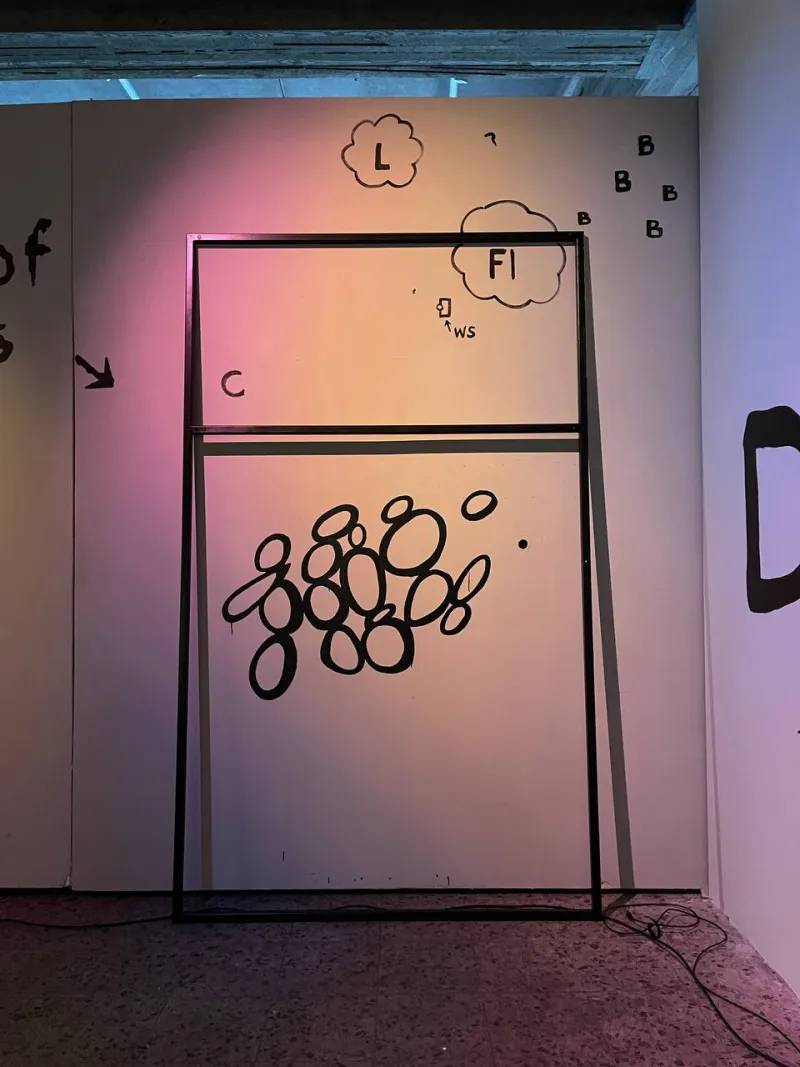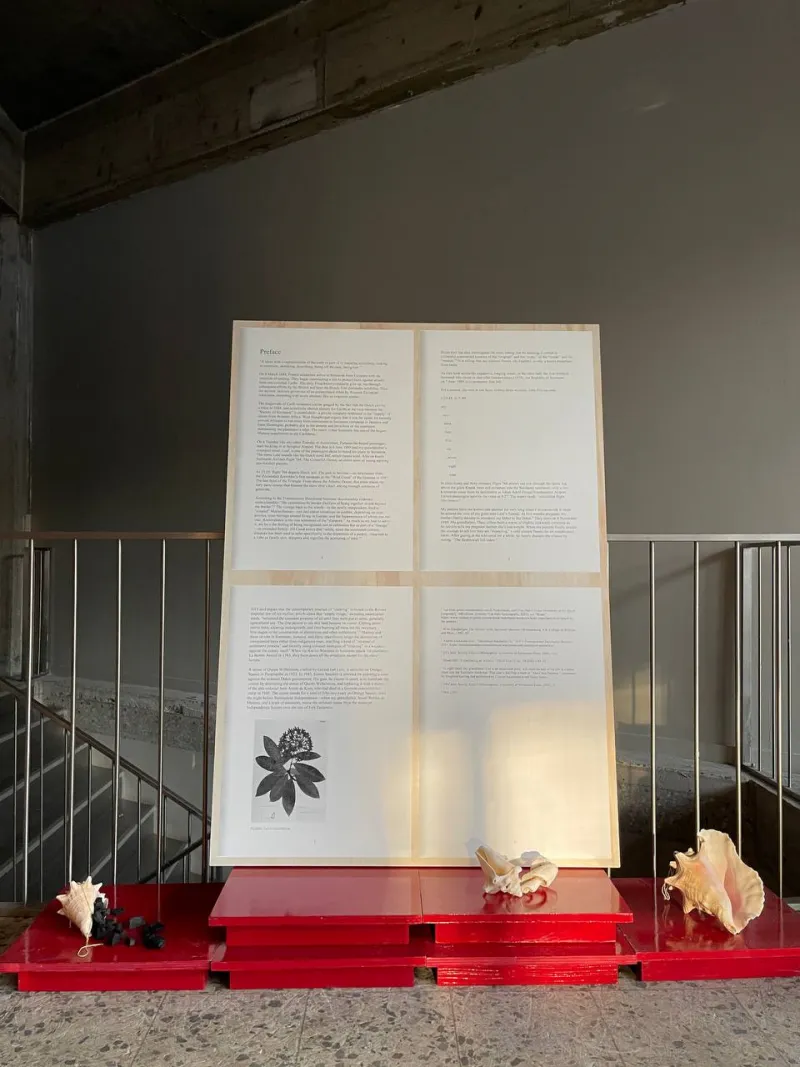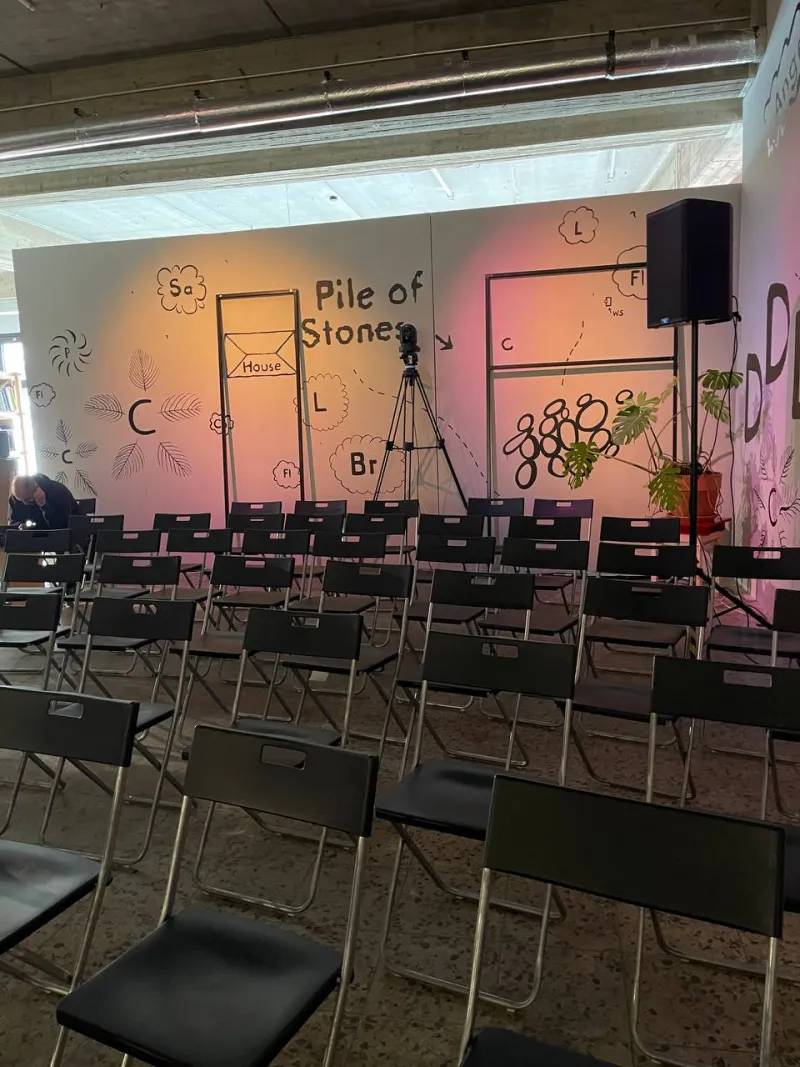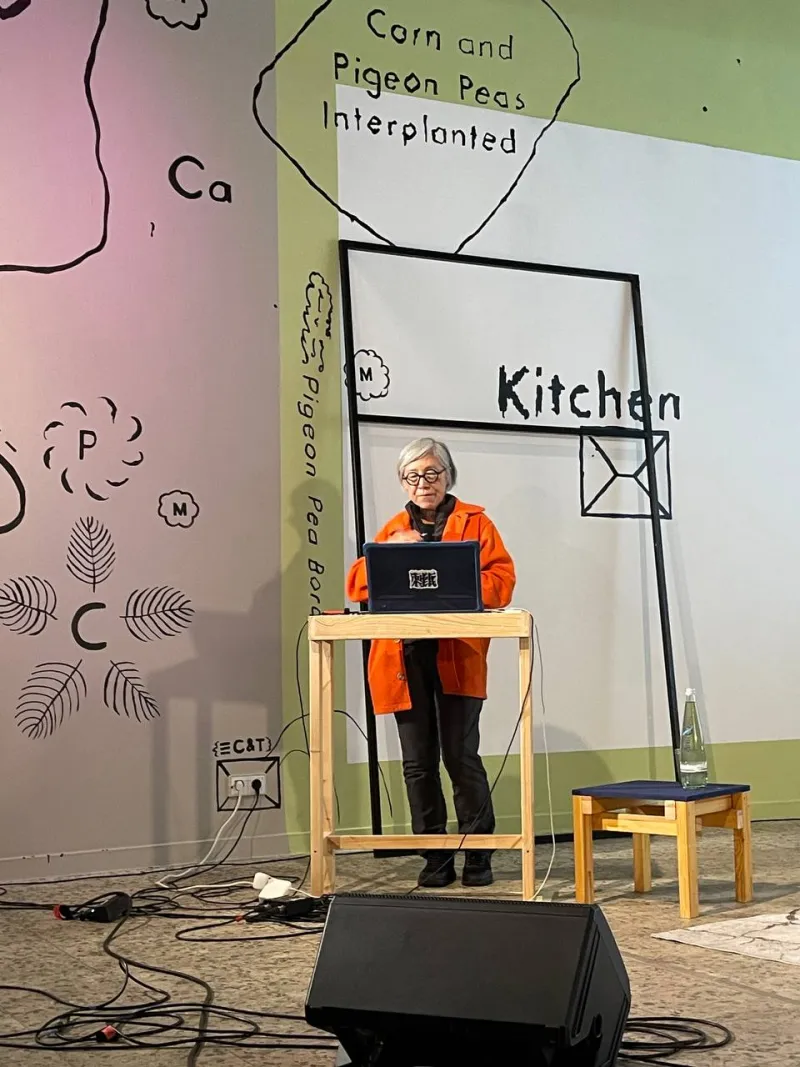DORA IXORA // fajalobi
A scenographic intervention developed with Xavier Robles de Medina, for SAVVY Contemporary's conference, Gardens in Transition, taking place in Berlin on April 26-27th, 2024. A collaboration with BPA // Berlin program for artists.
Caribbean home gardens are microcosms of global foodways, intimacies and spiritual practices. The DORA IXORA // fajalobi scenography is a mapping of those gardens which playfully uses the surfaces of the SAVVY exhibition space as ‘plantable’ topography. In its conception, the artists Felisha María Carènage and Xavier Robles de Medina have considered the role of photocopied texts in the memory and reimagination of spaces of belonging.
Although this garden illustration began with an investigation of a small plot on the island of Grenada, Felisha is thinking of her grandmother’s yard in Gasparillo, Trinidad. That home garden was typically Caribbean, and included Hibiscus and Ixora plants which were used in morning and evening prayer rituals; this particular spiritual practice was rooted in both Catholicism and Hinduism. Trees, bushes, paths, drains and structures feature in the drawings which make up the scenographic intervention in SAVVY’s space.
Felisha's scenography also riffs on Xavier’s artwork, Preface, which features Suriname's national flower, Fajalobi; the ixora macrothyrsa. Intimate family encounters are mapped onto global histories of nation-making (or is it the other way around?); Xavier’s telling takes the form of a book’s photocopied preface, which is a kind of bootleg trompe l'oeil screen-printed onto a single sheet of wood. Read Preface on Xavier's website.



